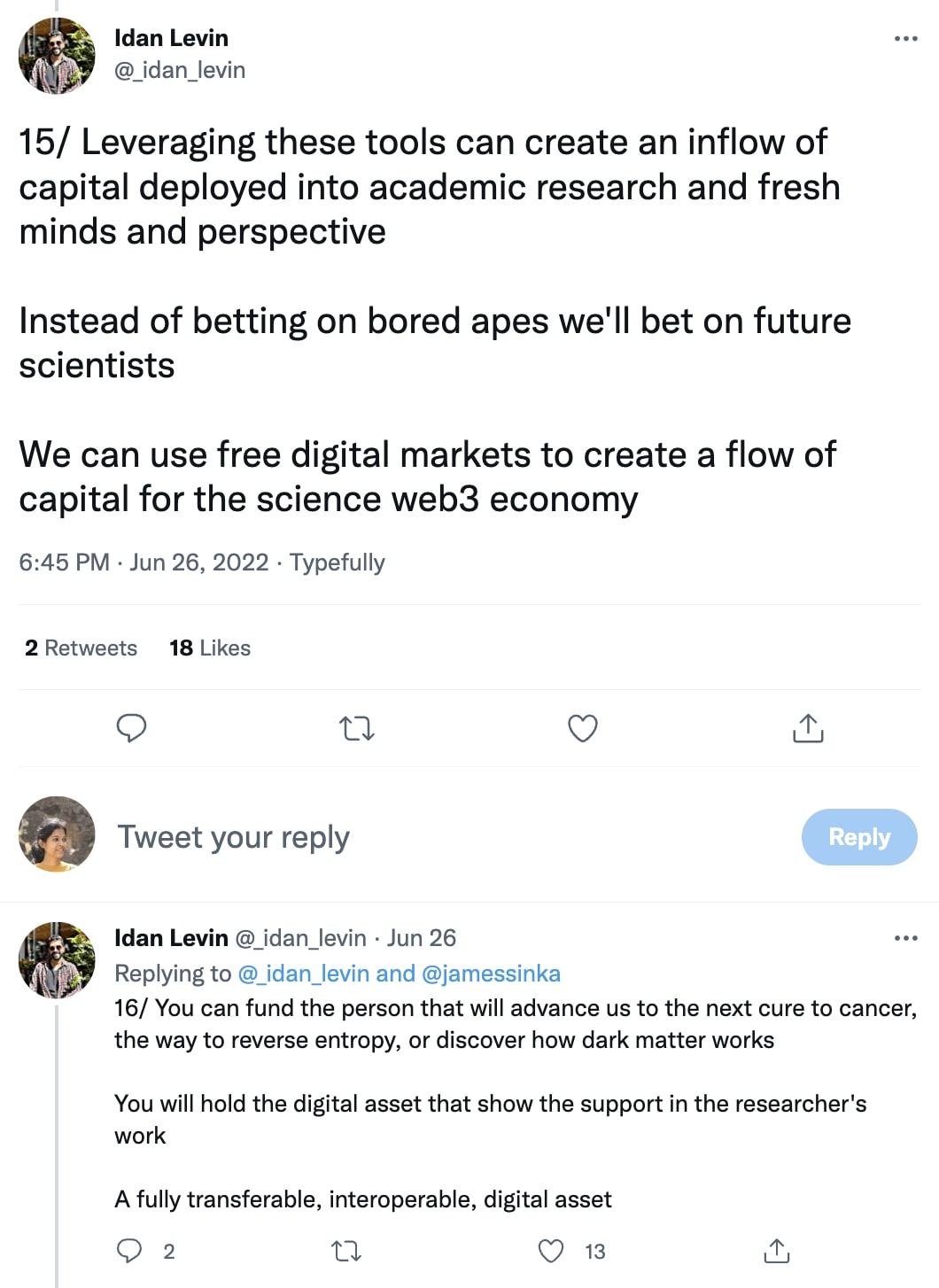Decentralised Science, or DeSci has emerged as the latest Web3 movement to improve modern science. While still at a nascent stage, the movement aims to revolutionise scientific research, publication, and funding using Web3 tools. In this guide, we’ll cover the basics of DeSci and why it’s important.
DeSci: What is Decentralised Science?
Put simply, Decentralised Science, or DeSci is a Web3 movement that aims to decentralise science. In essence, DeSci aims to use Web3 tools such as DAOs, smart contracts, and blockchains to solve major issues in scientific research and publication.
Primarily, DeSci focuses on two important movements. First is the measures taken by the scientific community to improve the research funding process and to facilitate unrestricted sharing of knowledge and information. The second underscores the crypto movement to reclaim ownership from centralised entities and profit-hungry middlemen.
Now, why exactly is this important?
Why is DeSci Important?
First and foremost, the academic funding model is in shambles. For one, scientists struggle to get the right funding for their projects. This comes after scientists spent more than 50% of their time writing grant proposals.
To be sure, their access to funding largely depends on the impact of their published work. This, in turn, pushes academics to pursue mainstream subjects, rather than critical ideas.
“Ultimately, inadequate and unreliable funding not only reduces the amount of science being done, but also biases which projects scientists choose,” wrote neuroscientist Sarah Hamburg.
Apart from funding, restricted access to scientific information is another major issue plaguing modern science. Due to private databases and gated and paywalled websites, most of the scientific data is inaccessible to the general public.

How Can Web3 Help?
To a great extent, Web3 can help resolve many of the issues the scientific community is battling today. Firstly, scientists can use NFTs as a tool to fund their research. In fact, some have already done this. Take for example biologist Merlin Sheldrake, who sold NFTs featuring images of his studies of fungi and plants. He used a part of the proceeds from the sale to fund his research.
Indeed, important scientific papers can also be turned into NFTs to raise funds. As Web3 investor, Idan Levin explained:
“Instead of betting on bored apes we’ll bet on future scientists. You can fund the person that will advance us to the next cure to cancer, the way to reverse entropy, or discover how dark matter works…You will hold the digital asset that show the support in the researcher’s work.”
In addition, scientists can use smart contracts to peer review by directly connecting authors and peer reviewers. This way, they can avoid middlemen who charge huge sums for peer-reviewing.
Furthermore, with DeSci, scientists or a designated community can truly own scientific data, instead of governments or enterprises. For instance, they can set up DAOs that take care of a specific niche. Some existing examples include Molecule, VitaDAO, LabDAO, and SCINET. This can also prevent scientific censoring, making the data available to people across the globe.
All in all, the possibilities that DeSci offers modern science are endless. However, it is still in its infancy. As a result, there is a need for more mainstream adoption of Web3 tools within the scientific community, before DeSci can unleash its full potential.
Are you tired of missing important NFT drops?
Check out our NFT Calendar!
Receive the biggest NFT news of the day & recommendations in our Daily newsletter.
All investment/financial opinions expressed by NFTevening.com are not recommendations.
This article is educational material.
As always, make your own research prior to making any kind of investment.




